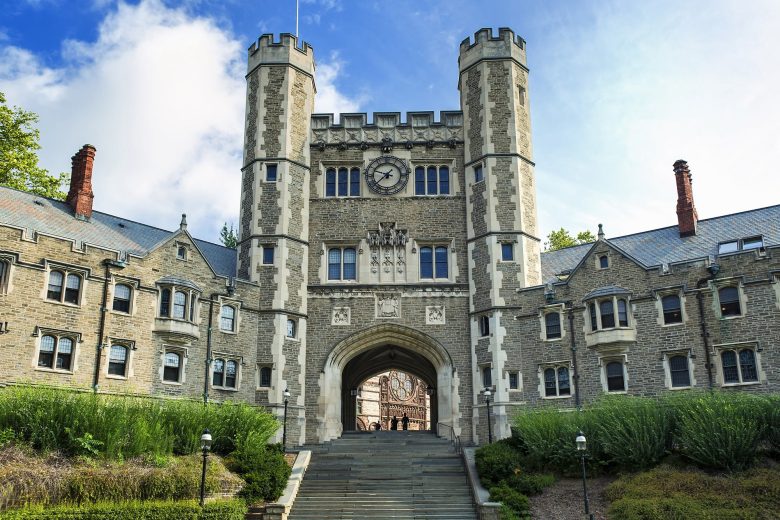The Ivy League is an association of eight private universities in the Northeastern United States. The eight member universities are Brown University, Columbia University, Cornell University, Dartmouth College, Harvard University, the University of Pennsylvania, Princeton University, and Yale University.
The term Ivy League is also often used to refer to the academic standards of these schools, and the social status of their students.
The Ivy League schools are some of the most selective colleges in the United States. In order to be accepted, students must have high grades and standardized test scores.
The most important factor in admission to the Ivy League schools is usually a student’s class rank. This is the ranking of a student’s grade point average (GPA) compared to other students in their graduating class.
The Ivy League schools typically only accept students who are in the top of their graduating class. This means that students need a high GPA to be accepted to these schools.
A good class rank for the Ivy League schools is usually in the top 10 or 20 percent of your graduating class. If your GPA is lower than this, you may not be accepted to these schools.
Do Ivy Leagues care about class rank?
There is no one answer to the question of whether Ivy League schools care about class rank. Each school has its own admissions policies, and it is likely that there is a range of opinions on the matter within the Ivy League.
That said, most Ivy League schools are likely to consider a student’s class rank to some degree. This is especially true for students who are applying to schools early decision or early action. In these cases, the school is likely to want to know how the student compares to the rest of their applicant pool.
For students who are applying regular decision, Ivy League schools may still take into account a student’s class rank, but it is less likely to be a deciding factor. This is because the pool of applicants is usually much larger, and the schools have more time to consider other factors.
Ultimately, it is important to do your research on each individual Ivy League school to determine if class rank is a factor in their admissions process.
Is top 25 class rank good?
In a recent study, it was found that students who are in the top 25 percent of their class rank have a much higher chance of getting into a good college.
The study, which was conducted by the Educational Testing Service (ETS), looked at the college admission rates of over 1.6 million students. It found that students who were in the top 25 percent of their class rank were more than three times as likely to get into a top-tier college than students who were in the bottom 25 percent.
While getting into a top-tier college is certainly not the only factor that goes into a successful career, it is an important one. And the fact that being in the top 25 percent of your class significantly boosts your chances of getting into a good college should not be ignored.
So, if you are a student who is aiming to get into a top-tier college, it is important to do everything you can to make sure you are in the top 25 percent of your class. This might mean putting in extra hours of work, or it might mean enrolling in a more challenging course load.
Whatever it takes, make sure you do whatever you can to achieve a top 25 percent ranking. It will be well worth it in the long run.
Is Ivy League class rank important?
The Ivy League is an elite group of eight universities in the United States. These universities are among the most prestigious and selective in the country.
One of the criteria for admission to these universities is the student’s class rank. However, is this ranking important?
There is no one answer to this question. It depends on the student and their goals.
For some students, the Ivy League’s class rank is important because they want to attend one of these universities. These students may believe that the ranking indicates the quality of the school.
For other students, the class rank is not as important. They may be more interested in the curriculum or the location of the school.
The class rank is just one factor that universities consider when admitting students. There are many other factors, such as grades, test scores, and extracurricular activities.
The Ivy League class rank is important for some students, but not for others. It is up to the individual to decide if it is important to them.
What is a good class rank for Ivy League?
When it comes to getting into the Ivy League, having a good class rank is important. But what is a good class rank for the Ivy League?
One study found that the average class rank for students admitted to the eight Ivy League schools in 2017 was 3.5 out of 5.0. This means that, on average, these students were in the top 35% of their high school classes.
But there’s no one answer to the question of what is a good class rank for the Ivy League. Each student’s situation is unique, and there are a number of factors that can affect whether or not a particular class rank is good enough for admission to an Ivy League school.
Some of these factors include the student’s grades in college prep courses, the level of difficulty of those courses, and the student’s GPA. In general, the higher a student’s grades and GPA are, the better their class rank will need to be to be competitive for admission to an Ivy League school.
But there are also a number of other factors that can influence an admissions decision, such as the student’s essays, extracurricular activities, and letters of recommendation. So there’s no one answer to the question of what is a good class rank for the Ivy League.
However, if you’re aiming to be in the top 35% of your high school class, that should put you in a good position to be competitive for admission to an Ivy League school.
Does class rank matter for Harvard?
There is no one answer to the question of whether or not class rank matters for Harvard. Each student’s situation is unique, and there are a variety of factors that can influence an admissions decision. However, in general, class rank is not considered as important as other factors such as SAT scores, extracurricular activities, and letters of recommendation.
That said, there are a few scenarios in which class rank might be more important for Harvard. For example, if you are close to the top of your class, your SAT scores may not be high enough to get you into Harvard on their own. In this case, your class rank could be a deciding factor. Additionally, if you are applying to a specific program at Harvard that has a competitive admissions process, your class rank may be more important.
In most cases, though, class rank is not a major factor in Harvard admissions decisions. Students with lower class ranks can still be admitted if they have strong SAT scores and impressive extracurricular activities. So don’t worry if you’re not at the top of your class – Harvard is interested in many different things when considering applicants.
Does class rank matter for Ivy Leagues?
In the eyes of many students, their class rank is one of the most important factors when it comes to applying to Ivy League schools. And while the schools themselves don’t release this information, it is often thought that being in the top 10 percent of your class can help increase your chances of getting into an Ivy League school.
But does class rank actually matter when it comes to getting into these prestigious institutions?
The answer is a bit complicated.
On the one hand, Ivy League schools do not release information on the class rankings of their applicants. However, they do look at a variety of factors, including grades, test scores, and extracurricular activities, when determining who to accept.
So, while class rank may not be the most important factor, it is certainly one that the schools take into consideration.
Another thing to keep in mind is that, even if you are not in the top 10 percent of your class, there are still things you can do to improve your chances of getting into an Ivy League school.
For example, you can submit a strong application, including excellent grades and test scores, as well as letters of recommendation and a compelling essay.
And, if you are able to afford it, you may want to consider attending one of the many prep schools that are associated with the Ivy League schools.
So, while class rank is certainly important, it is not the only factor that the Ivy League schools consider when making admissions decisions. There are many things you can do to improve your chances of getting in, even if you are not in the top of your class.
How much does class rank matter to Ivies?
In the college admissions process, class rank matters a great deal to Ivy League schools. The Ivies prefer to admit students who are at the top of their classes, and they give a lot of weight to students’ class ranks when making admissions decisions.
For students who are hoping to get into one of the Ivies, it’s important to know how much class rank matters to these schools. In general, the Ivies place a lot of emphasis on students’ academic records, and they are looking for students who have achieved a lot academically.
Class rank is one of the best indicators of a student’s academic achievement, so it’s no surprise that the Ivies give it a lot of weight. In most cases, the Ivies will only admit students who are in the top of their classes.
There are a few exceptions to this rule. For example, if a student has a very strong application overall, the Ivies may be willing to overlook a lower class rank. But in most cases, class rank is a very important factor in the admissions process.
So if you’re hoping to get into one of the Ivies, it’s important to make sure that you’re doing well in school and that you’re at the top of your class. And if your class rank isn’t as high as you would like it to be, you need to work hard to raise it.
The good news is that the Ivies are very interested in students who show academic excellence, so if you’re able to achieve a high class rank, you’ll have a good chance of getting into one of these schools.
Does Harvard look at class rank?
Harvard and other top colleges do take into account a student’s class rank when making admissions decisions. However, there is no single cutoff point that guarantees admission to Harvard or any other school. Rather, Harvard looks at a variety of factors when considering an applicant, including academic achievement, personal essays, letters of recommendation, and extracurricular activities.
So while class rank is certainly one factor that colleges consider, it is not the only one. There is no precise formula for getting into Harvard or any other top school. Students who are interested in attending a school like Harvard should work hard in high school and do their best in all their classes. They should also get involved in extracurricular activities, write thoughtful essays, and ask teachers and other adults for letters of recommendation. If students do all of these things, they have a good chance of being accepted to the school of their choice.
Do colleges really care about class rank?
In the era of the Common App, when students apply to college by submitting a single application to dozens of schools, class rank is less important than ever before. And yet, many students and their parents still worry about whether their rank will hurt their chances of getting into their dream school.
The truth is, colleges care about class rank to a certain extent, but it’s not the only factor they consider. They also look at grades, SAT or ACT scores, essays, letters of recommendation, and extracurricular activities.
That said, class rank can be a helpful indicator of a student’s academic ability. If you are in the top 5% or 10% of your graduating class, your chances of getting into a prestigious school are much higher than if you are in the bottom half.
But if you’re not in the top of your class, don’t worry. There are plenty of great schools that don’t require you to be in the top of your class to get in. And if you do get rejected from your dream school, there are plenty of other great schools out there.
What is top 25 percent of class?
What does it mean to be in the top 25 percent of your class? This can mean different things depending on the context, but usually it means that you are doing better than most of your classmates.
In terms of academics, being in the top 25 percent of your class usually means that you have a high grade point average (GPA). This can be important for getting into college or for scholarships. It can also mean that you are eligible for certain honors or awards.
Being in the top 25 percent of your class can also mean that you are a high-achieving student in other ways. You may be involved in extracurricular activities or have a high score on the SAT or ACT.
If you are in the top 25 percent of your class, congratulations! This means that you are doing well and have a lot to be proud of. Keep up the good work and continue to strive for excellence.
Is top 10% of my class good?
Is top 10% of my class good? This is a question that many students ask themselves as they near the end of their high school careers. There is no definitive answer, as the answer depends on the individual student’s goals and abilities. However, here is some general information on the pros and cons of being in the top 10% of your class.
One of the main benefits of being in the top 10% of your class is that it can help you stand out from the crowd when applying to colleges. Colleges often give preference to students who have performed well in school, so being in the top 10% can give you a competitive edge. Additionally, colleges often look favorably on students who have taken challenging courses and achieved high grades.
Another benefit of being in the top 10% of your class is that it can give you a head start in your career. Many jobs require a college degree, and those degrees are becoming more and more specialized. Therefore, having a degree from a prestigious school can give you a leg up on the competition.
However, there are also some drawbacks to being in the top 10% of your class. One downside is that it can be difficult to maintain this level of success throughout your academic career. It is also important to note that not all colleges are created equal, and some schools are better than others. Therefore, it is important to do your research before choosing a college.
In conclusion, there is no right or wrong answer to the question of whether or not being in the top 10% of your class is good. It depends on the student’s individual goals and abilities. However, being in the top 10% can have both benefits and drawbacks, so it is important to weigh the pros and cons before making a decision.
What is the best class rank?
There is no definitive answer to the question of what is the best class rank because there are numerous factors to consider.
One important consideration is how class rank is determined. Some schools rank students based on their grades alone, while others also take into account standardized test scores or other factors.
Another consideration is how the rank is used. For some students, a high rank is important for college admissions. For others, a high rank may not be as important, or it may even be a disadvantage.
Finally, there is no consensus on what the best rank is. Some students and parents believe that the top rank is the best, while others believe that the lower ranks are better.
There is no one answer to the question of what is the best class rank. It depends on the individual student’s situation and priorities.
What is the best class rank in high school?
There is no definitive answer to the question of what is the best class rank in high school. Every student is different, and what may be best for one may not be best for another. However, there are a few things to consider when trying to determine the best class rank for you.
One important factor to consider is how your class rank will be viewed by colleges. Most colleges look at class rank as one factor in determining admission, but they may also look at other factors such as grades, SAT scores, and extracurricular activities. Some colleges may even place more emphasis on class rank than others.
Another thing to consider is what you want to get out of high school. If your goal is to get into a top college, then you will likely want to focus on getting the best grades possible and have a high class rank. However, if you are more interested in enjoying your high school experience and not as focused on college, then you may not need to worry as much about your class rank.
There is no one definitive answer to the question of what is the best class rank in high school. It really depends on the individual student and what their goals are. However, it is important to keep in mind how your class rank will be viewed by colleges and what you want to get out of high school.
Is it good to be in the top 5% of your class?
There are many benefits to being in the top 5% of your class. For one, you are likely to earn a higher salary. In a study by Payscale, they found that the median pay for workers in the top 5% of their class is $75,000, while the median pay for those in the bottom 5% is only $35,000.
In addition, top students are more likely to be promoted and have successful careers. A study by McKinsey & Company found that the top 5% of performers are more than two times as likely to be promoted as the bottom 5% and are more likely to have successful careers.
So, is it good to be in the top 5% of your class? The answer is unequivocally yes! There are many benefits to being a high achiever, including higher pay and greater career success.
Do colleges care about class rank?
There is no one definitive answer to the question of whether or not colleges care about class rank. However, there are certain things that colleges typically look for when considering an applicant, and class rank is not typically one of them.
Instead, colleges typically focus on a student’s grades, SAT or ACT scores, and the strength of their high school curriculum. These factors give a better indication of how a student has performed in the past and how they are likely to perform in the future.
That said, there are some schools that do place a heavier emphasis on class rank. So if you are hoping to attend one of these schools, it is important to research their admissions requirements in advance.
In the end, whether or not a college cares about class rank is largely dependent on the individual school. So it is important to do your research and to understand the admissions requirements of the schools you are interested in.



